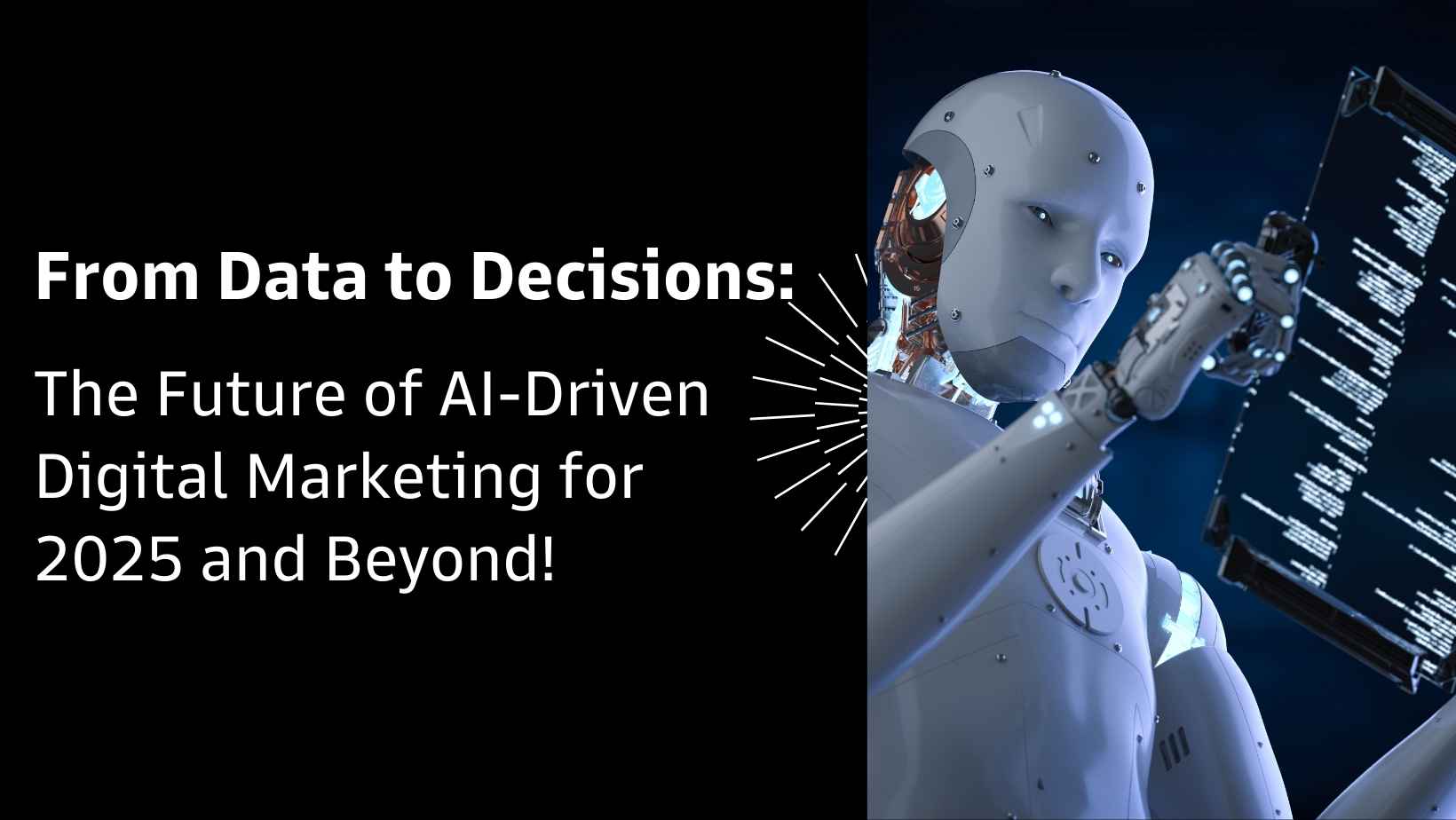The past couple of years have been all about AI innovations in digital marketing. Introduction of GenAI and machine learning has already started impacting the marketing and sales process in a positive way.
There is an abundance of AI powered tools in the market that helps enhance marketing and lead generation workflows on different marketing cycle stages, such as lead generation, qualification, lead nurturing and sales closing.
Reputed players such as Hubspot, Zoho, Keap, SalesForce, GoHighLevel and Zapier have already introduced a lot of AI powered features into their sales and marketing products suite.
A lot of large and small marketing agencies are opting for AI powered tools to implement robust marketing strategies, but with this innovation comes a feeling of anxiety in this digital marketing ecosystem.
Numerous research reports are published regularly explaining the impact of AI on digital marketing in the coming future, but it is not clear how and where AI will create the biggest impact.
As per a study done by Kaltura, 88% of marketers are actively using or experimenting with AI Powered Tools, remaining 12% are still figuring out AI and planning to use it in the future.
Out of these 88% users 41% used AI tools occasionally 36% are experimenting, 11% use AI tools frequently. Digital marketers who are using AI, 69% have paid subscription to AI powered tools, 29% are planning to purchase AI tools subscriptions.
The main Areas where digital marketing teams are using AI includes:
- Content personalization – 47%
- Chatbot – 47%
- Content creation – 44% (includes content video and audio)
- Product/content recommendation – 37%
- Social media marketing – 32%
- Predictive analytics and reporting – 30%
- Paid advertisement – 26%
- Target audience segment and targeting – 25%
- Search Engine Optimisation – 7%
How much value does AI add to digital marketing strategies?
- 71% acknowledge that AI adds some value to their marketing tactics.
- 13 % feel that AI has impacted their work to a great extent.
- 17% find no impact on their work due to AI usage.
- 33% of those who frequently use AI tools believe that AI has impacted their work to a great extent.
- 14% who use AI occasionally, say that AI has impacted their work to a great extent.
- 6% who are currently experimenting with AI say that AI has impacted their work to a great extent.
Impact of AI on lead generation:
- 7% experienced increase in lead generation due to AI usage.
- 41% saw an increase in lead generation, but thinks that some of that is due to AI.
- 48% saw an increase in lead generation, but don’t think it is due to the use of AI.
- 3% did not experience an increase in lead generation with AI
- 25% of the marketers who experienced improvement in lead generation are frequent AI users.
Challenges of AI Adoption.
For 50% of the AI users in digital marketing, the main concern is data security and integration with different marketing tools.
50% of the AI users find it challenging to have AI implemented into the current marketing systems they are using.
- 45% of the users have ethical and privacy concerns
- 31% find the subscription cost of AI tools a roadblock.
- 31% find lack of competition among AI tools.
- 31% are uncertain about the future of AI in digital marketing
- 31% see lack of expertise in AI as the biggest challenge.
- 27% finds shift in mindset as the biggest roadblock in the usage of AI in digital marketing.
Benefits of AI adoption in digital marketing
Here are the figures on what digital marketers think about the benefits of AI adoption.
- 51 % think that AI has Improved the quality of work
- 48% think that adoption of AI has helped them scale their work
- 45% think that AI has helped with the cost reduction.
- 45% say that usage of AI has helped increase productivity.
- 39% feel that by using AI, they have got a competitive advantage against other rivals.
- 33% have seen improved team performance with the introduction of AI.
- 32% have seen improvement in marketing activities with AI.Fear Among Marketers regarding AI
The biggest concern digital marketers have these days is that AI will make the marketing job market redundant.
- 65% of the marketers are worried that AI might snatch their jobs.
- 35% are not worried
- 5% are very worried and have made up their mind that AI will be the main reason behind job losses in digital marketing in the near future.
But honestly it is a myth. AI is helping increase productivity and helping marketers improve the work quality. So start using AI today.
While AI technology can certainly automate a lot of manual tasks, it is still a long way from reaching a stage where it replaces marketers altogether.
Even with the increased application of AI tools in marketing, it is unlikely to replace human marketers in the near future. AI will rather optimize marketers’ capabilities with automations and providing detailed data-driven insights, allowing marketers to deep dive on strategy, creativity, and understanding customers behavior in a better way.
AI tools provide customer data and activities into actionable, personalized insights, which helps marketers to indulge in more relevant and personalized cross-channel consumer engagement. AI can easily understand digital breadcrumbs, replacing manual interpretation with automated decision making, thus helping modern marketers take smarter decisions about customer experiences.
AI allows marketers to use available data to strategically deliver smart customer experiences that help achieve greater business profitability.
So, as I read in Forbes, Change is in the AI-r, so don’t hesitate to be a part of this revolutionary change.
Watch this interesting clip showing how Starbucks engineers are using AI to provide personalized coffee and food recommendations.

